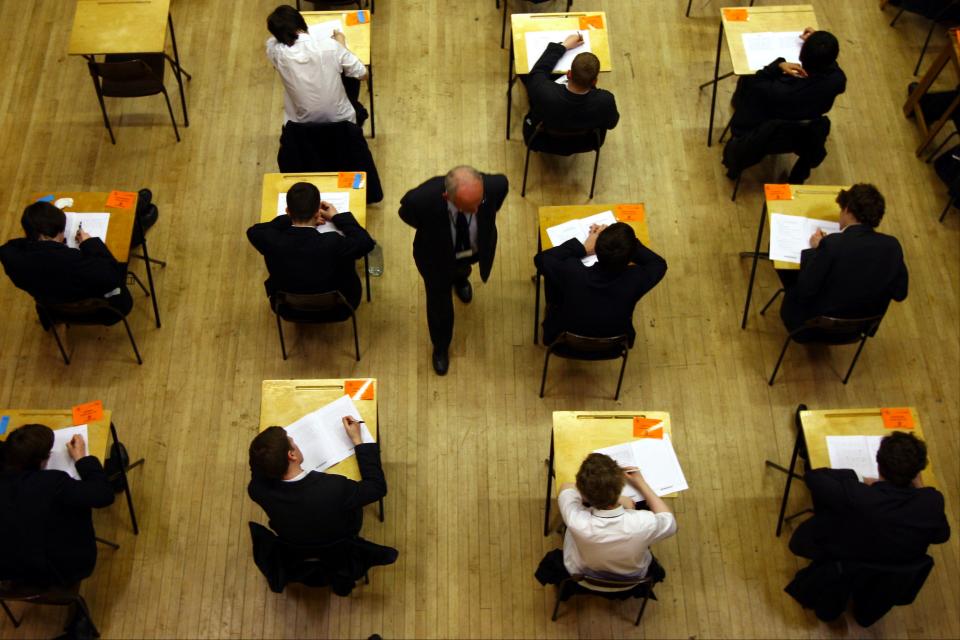Autumn GCSEs and A-levels ‘will only add extra stress to pupils and schools’

Plans to allow teenagers to take exams in the autumn after GCSEs and A-levels were cancelled this summer will cause further stress and disruption in schools, experts warned on Thursday.
Students will receive teacher-assessed grades this summer after exams were cancelled for the second year running due to the pandemic. But regulator Ofqual has announced students will then be eligible to take their exams in the autumn term if they want to.
Under the plans, exam boards will have to offer exams in all GCSE and A-level subjects and some AS subjects, but no allowances will be made to take into account the effects of the pandemic. Grades will be based entirely on the exam performance, except in art and design.
Professor Alan Smithers, director of the Centre for Education and Employment Research at the University of Buckingham, said: “Exams require preparation in their own right, and that’s not something pupils have been much engaged in this year since they were told exams were not going to happen. To organise for exams is going to involve a tremendous amount of effort on their part.”
He added: “If someone has spent a year knowing there are not going to be sitting exams, and approaching their work in that way, it is doubtful that they will be able to really show what they are capable of in an autumn exam.”
Geoff Barton, general secretary of the Association of School and College Leaders, said the decision to run exams in autumn “owes more to public relations than it does to common sense.”
He added: “The whole point of cancelling public exams this summer was because the pandemic has affected the learning of students to varying extents. This will still be the case in the autumn and the idea of an exam series at that point is just as problematic as it would have been in the summer. It cannot possibly be a level playing field and those who were worst affected by the pandemic will still be at a disadvantage.”
Teachers have been handed the responsibility of coming up with students’ grades, and can use exam-style papers as well as coursework and homework to base their assessment on. But many have complained there is little direction on what types of assessment should be prioritised or the weighting that should be given to them in reaching the overall grade.
Ofqual has insisted that there will be no “exams by the back door” but research by ASCL found most schools will use exam-style papers to assess students. Teachers must submit grades to exam boards by June 18 and results will be given to students in August.
Richard Tillett, principal of Queen’s College, London, a private girls’ school in Harley Street, said the autumn exams will be useful for pupils who feel they have been disadvantaged by this year’s unique system. But he added that only a small number of students will take exams in the autumn because of the disruption they will cause.
Ofqual said: “There was clear support from those who responded to the consultation for any student who receives a teacher-assessed grade in summer 2021, or who would have entered the exams in summer 2021, to be eligible to enter the autumn 2021 exams.”
Read More
Extra 20,000 ‘invisible’ children drop off school roll since pandemic
Almost half London’s youth clubs face closure
Young children needing more help with language skills during lockdown

 Yahoo Finance
Yahoo Finance 